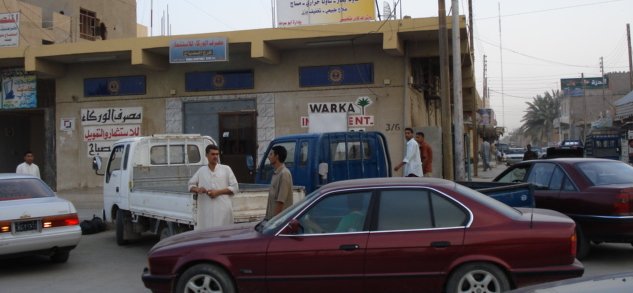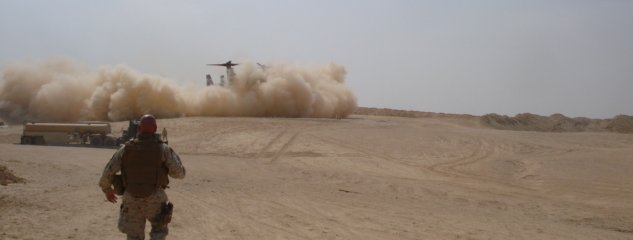
After meeting with the troops and giving out some coins, General Petraeus flew off to his next appointment. We went into the city of Husaybah for a market walk. The Mayor wanted to go along. I am not sure if he adds value or subtracts. The mayor is apparently popular. He spoke easily with his constituents and they spoke to him about their problems and hopes. While I enjoyed watching a good Iraqi politician in action, I tried to get away a bit and talk to citizens outside the glow of the leading local politician.
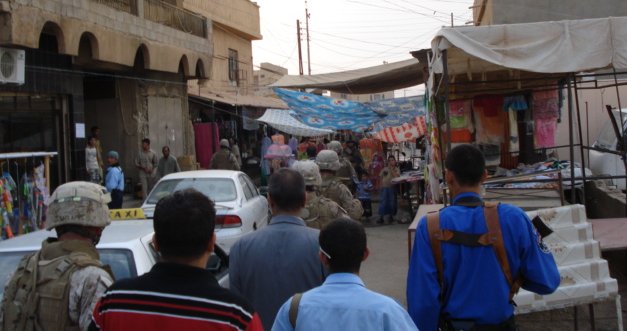
Husaybah is obviously doing okay. In addition to good produce in the shops, we saw lots of small appliances, clothing, rugs and even gold. They said the much of the gold is 21-24 carat, which makes the jewelry more expensive and, IMO, less attractive because it is more of an orange color rather than the shiny gold you get with more alloyed metal. This quality of gold is evidently the “gold standard” in the Arab world. Of course, not all of it was of the first quality; however, so much gold displayed in the windows indicates both a feeling of prosperity and security.
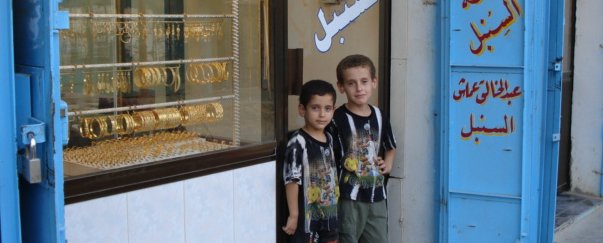
We are a couple of days into Ramadan, which affected what we saw in the marketplace. We were there about an hour before sundown and it was clear that merchants were preparing for a rush of customers who would show up when the sun dipped below the horizon. I bought some pickles and an assortment of baklava, of course to eat later and not in the street during Ramadan. The baklava cost 3500 dinar for a really big assortment of high quality product. (I personally don’t like the stuff. It is way too sweet and sticky, but plenty of our colleagues were happy to have it at chow when we got back to Camp Gannon II. It is a good break from Pop-Tarts). The pickles (made of assorted vegetables) cost 1500 dinar for a kilo. I do like those things and they were high quality.
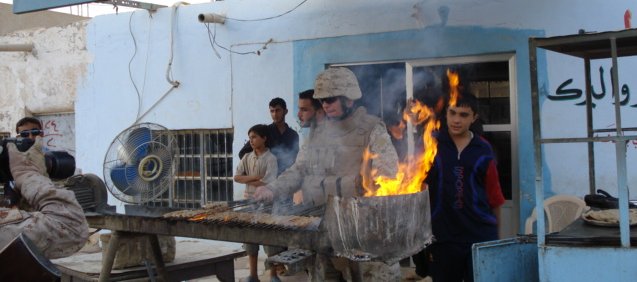
I couldn’t find any kabobs that were ready to eat. As I wrote above, merchants were busy cooking things up and preparing for the post-sundown rush and many were just beginning to fire up their grills. LtCol McCarthy helped with some of the grilling, as you can see above. The grill, BTW, is wood fired. The flames you see are from the fresh wood. After it dies down to coals, they move it into the kabob cooking zone.
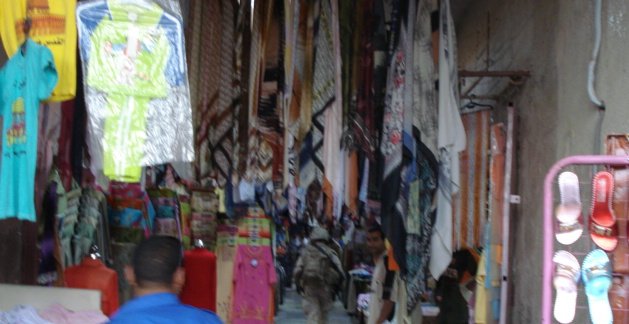
Above is a roofed market where they sold a variety of products. It reminded me of markets I had seen in Istanbul. Inside it was already a little too chaotic for me; I can imagine how it must be when the people crowd in after sundown. In this market too, you could feel the anticipation among the merchants. Among other things, they were selling spices, but – unfortunately – I didn’t find any pistachios or dried apricots, which is what I was really looking for. I don’t know how to judge this market. If I compare it to Istanbul, it is very much less. However, Husaybah is a much smaller and less important city. Maybe they do not have those sorts of things in general. It seems to have all the things that the local people could need.
Below – traffic is becoming a problem on the narrow streets. As you can see in the background, they have ATMs, but they seem to work only during working hours.
